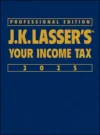Amended Return Opportunities
The Further Consolidated Appropriations Act, 2020 (P.L. 116-94) retroactively reinstated dozens of expired tax breaks. Some of these breaks are for individuals, while others are for businesses. Determine which breaks may apply to you, whether it makes sense to file an amended return, and how to timely submit an amended return to claim a tax refund.
Extenders for individuals
The following tax breaks have been retroactively extended to 2018; they apply as well for 2019 and 2020. Here are some key extenders:
- Exclusion from gross income of income resulting from the cancellation of mortgage up to $2 million on a main home
- Tuition and fees deduction of up to $2,000 or $4,000 (depending on income) as a deduction from gross income (no itemizing is required)
- Mortgage insurance premiums treated as home mortgage interest
- Cash contributions made by February 18, 2020 to benefit disaster relief deductible up to 100% of adjusted gross income (but only for federally-declared disasters declared by February 18, 2020)
- Nonbusiness energy property credit of up to $500 for adding insulation and certain other energy improvements to a main home
- Tax credit for a 2-wheeled plug-in electric vehicle
The kiddie tax has been changed again. Before 2018, the parents’ top marginal rate was used to compute the kiddie tax on a child’s unearned income over a threshold amount. Then the law was changed to use the rates for trusts and estates, which had the effect of greatly increasing the tax for some children. For tax years beginning after December 31, 2019, the new law goes back to the rules using the parents’ marginal rate, and you can elect to apply this change retroactively to 2018 and 2019. Consider electing to use the old rule (the parents’ marginal rate) for 2018 if it results in a lower tax than the tax with the rates for trusts and estates.
Extenders for businesses
The following business-related tax breaks have been retroactively extended to 2018; they apply as well for 2019 and 2020 (or longer where noted):
- Changes in recovery periods for certain racehorses and motorsports entertainment complexes
- Expensing of certain TV, movie, and live theatrical productions
- Empowerment zone tax incentives
- Various energy-related tax credits (with extensions for biodiesel and renewable diesel tax credits through 2022)
- Deduction for energy efficient commercial buildings
- New markets credit
- Certain employment-related tax credits, including the employee retention credit
Deciding whether to file an amended return
The biggest question that most taxpayers have when it comes to filing an amended return is whether it will increase the risk of being audited. With today’s extremely low audit rates (just 0.59% for individuals in the government’s 2018 fiscal year ending September 30, 2018), the risk is low. But with that said, there are no guarantees that a taxpayer who files an amended return won’t become an audit statistic.
Another consideration in deciding on whether to file an amended return is cost for those who use paid preparers. Professional fees for filing an amended return could exceed any refund you may receive, and this just doesn’t make financial sense to move forward.
How to file an amended return
Watch for deadlines. If you’re owed money, you must file no later than 3 years after the date you filed your original return or within 2 years after the date you paid the tax, whichever is later.
An amended return is submitted on Form 1040X. You cannot file this form electronically; you must file a paper form. This is so whether your original return was filed on paper or electronically. The IRS has been encouraged by the National Taxpayer Advocate to adopt electronic filing for amended returns, but there’s no indication when this could happen.
You must explain the substance of the amendment to your return; . This may require you to attach documentation to show what you mean. For example, if you want to claim the tuition and fees deduction for 2018, attach your copy of Form 1098-T to show the amount you paid.
Conclusion
You have time to act with respect to an amended return for 2018, so think whether your time and effort (and professional fees if you pay someone to file on your behalf) is worth the refund you could receive. Watch for possible IRS guidance for simplifying the amended return process. Taxpayers could get lucky.



